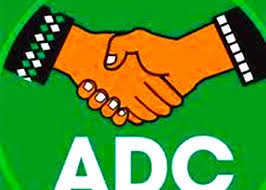I had always been curious how the Independent National Electoral Commission (INEC), Nigeria’s electoral umpire, would have more than sufficient time, funds and personnel for elections, yet, some stakeholders would accuse it, right or wrong, of shoddy performances following outcomes.
This curiosity, which killed the cat, led me to be an INEC adhoc staff in the September 21 Edo State Gubernatorial Election. I opted for Orhionmwon Local Government Area, my local government of origin.
Between 16 and 18 September, INEC adhoc staff members were in the College of Education, Abudu, the administrative headquarter of Orhionmwon Local Government Area, for training towards a hitch-free election. For some of us resident in Benin City, the Edo State capital, transport fare to Abudu was between N1,500 and N2,000. For the three days, INEC, Orhionmwon Local Government, did not provide sachet water, soft drinks or food for the adhoc staff.
On the second day of the training, I asked an INEC staff how much the adhoc staff would receive. Personally, I did not want to do ‘afamaco work.’ The story is told of what Afam & Co did to workers in Benin City some years ago. Afam & Co had the notoriety for failure to pay its workers regularly. This necessitated the workers leaving the company and Afam & Co would advertise for job vacancies and recruit new staff. Again and again, it was never forthright in the payment of salaries, leading to frequent resignations and forfeiture of salaries.
It got to a point that youths in Benin City became aware of the notoriety of Afam & Co in non-payment of salaries. Therefore, when Afam & Co advertised for vacancies, youths refused to apply, claiming ‘I no fit do Afamaco work’.
In response, the INEC assured that all the adhoc staff shall all be paid, without disclosing how much was involved. Before the close of Day Two Training, INEC admonished us to create a WhatsApp group platform for information among ourselves.
On Day Three, we were taught how to handle the Bimodal Voters Accreditation System (BVAS) machine. We were warned not accept anything from politicians as far as the election was concerned, either cash or kind. Any gift from politicians on the day of any election should be regarded as a Greek gift, we were told.
On Friday, the day before the election, adhoc staff arrived Abudu, some as early as 3pm. At about 9pm, vehicles, hired by INEC started moving materials, INEC staff, security, party agents and adhoc staff to various polling wards. Some of us were deployed to Igbanke, which has two Wards – East and West. We got to Ake Primary School, the Collation Center, East Ward, at about 11pm following the frequent breakdown of a vehicle carrying the materials along Oza-Igbanke road.
The police escort vehicle also broke down because it had no fuel. At Ake Igbanke, all restaurants and shops had closed and there were no bathroom or toilet facilities. But INEC had more than enough mats, with which it generously distributed to adhoc staff, who slept on the floor.
THE D-DAY
I was stationed at Ward 11, Unit 2, Ake Primary School. We were woken up at about 4.30am and again given refresher course on how to go about the day’s work, especially the handling of BVAS. At about 7am, we were given N4,500 each as ‘feeding money.’ The election commenced at 8am and ended at 2.30pm. It went on smoothly as planned, with few hitches, ostensibly caused by the heavy downpour. Then it was time to count the votes and declare the winner. That job fell on me in the presence of adhoc staff and party agents. I had to be very diligent in counting the votes because I remembered Joseph Stalin, the Russian, who said: ‘those who vote decide nothing. Those who count the votes decide everything.’ It was a free, fair and credible election in my polling unit.
INEC’s chicanery
After declaration of results for Units 1 and 2, INEC adhoc staff were given forms to fill and sign, which to our surprise, showed that the total amount INEC adhoc staff, Orhionmwon Local Government Area would get for the five days of working for INEC was N17,500 each (including the N4,500 earlier disbursed). The balance N13,000 was to be paid into our banks, the details were disclosed in the filled and signed INEC form. Thereafter, we were moved to Abudu at about 7pm. Some adhoc staff slept there while others travelled back to their various destinations that night.
INEC’s fraud
It was as from Monday, 23, that, through the INEC adhoc staff platform, some people started indicating that they had got alerts of N10,000, instead of N13,000. It was on Friday, 27, after I called my Presiding Officer, informing her that I was yet to be paid that INEC alerted me with N10,000. As I write this piece on October 5, some adhoc staff are yet to be paid.
Conclusion
I informed the platform members that INEC had shortchanged me. In response, some of them said: ‘you no happy say you get at all?’ ‘Send me the money if e too small’. Their response was akin to half bread is better than none. It would be inhuman for INEC, national or state to approve N17,500 for adhoc staff that it used for election duties for five days without food, water and shelter. If, indeed, such ridiculous amount was approved, why were we paid N14,500, having made us to sign for N17,500? This goes to confirm that corruption is in virtually all sectors of public life in Nigeria. Certainly, the ghost of Afam & Co has resurfaced in INEC. As I wondered what to do to retrieve my stolen money, I was advised to ‘go to court.’ Indeed, to the Court of Public Opinion I shall go.


